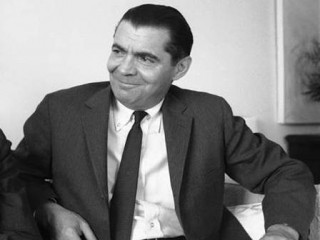
George E. Palade biography
Date of birth : 1912-11-19
Date of death : 2008-10-08
Birthplace : Iaşi, Romania
Nationality : Romanian
Category : Science and Technology
Last modified : 2011-12-17
Credited as : scientist, "the most influential cell biologist ever", Nobel laureate
0 votes so far
Palade also received the U.S. National Medal of Science in Biological Sciences for "pioneering discoveries of a host of fundamental, highly organized structures in living cells" in 1986, and was previously elected a Member of the US National Academy of Science in 1961.
Palade mapped the structure of mitochondria, and showed that microsomes (which had previously been thought to be mitochondria fragments) are parts of the internal cellular transport system. He studied and described cytoplasm (ribosomes), investigated chemical synapses, and developed better methods for centrifuging, electron microscopy, and preparation of tissue for lab work. He won the Nobel Prize for Medicine or Physiology in 1974 (with Albert Claude and Christian de Duve), for their separate studies of the metabolism of organelles in biological cells.
While he was at Rockefeller University, Palade worked under two Nobel laureates, first Albert Claude and later Herbert S. Gasser. He spent more than a decade editing the scientific review Journal of Biophysical and Biochemical Cytology. His wife, Marilyn Gist Farquhar, was a professor of cellular and molecular medicine at the University of California at San Diego, and a past president of the American Society for Cell Biology. His son, Philip Palade, is a pharmacology professor at the University of Arkansas.
















